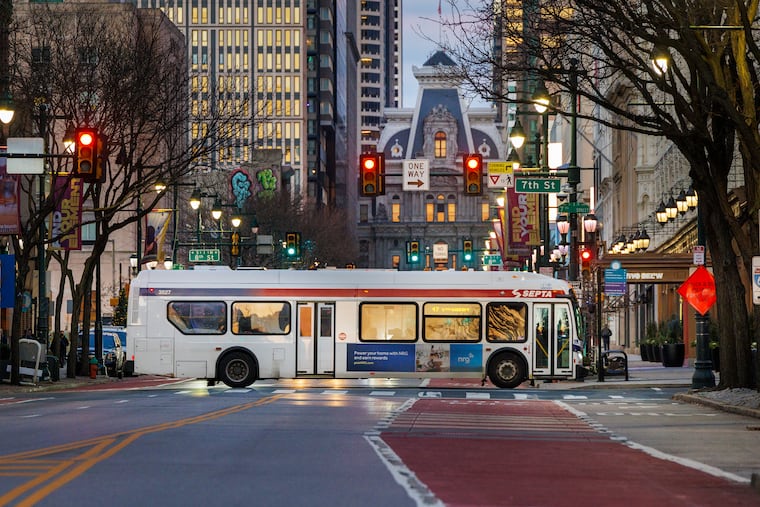SEPTA has cut $27 million to reduce a deficit and boost its case for new state transit money
Without aid, "there's simply no amount of cutting we can do to plug a $213 million deficit."

SEPTA is trimming costs as it drafts a new operating budget and hopes to wring new state dollars from the legislature.
So far, SEPTA says, it has cut $27 million with austerity measures, including a salary and benefits freeze for 1,300 executives, senior managers, and department directors.
“We’re looking for ways to be more fiscally disciplined in how we run the business,” said Scott Sauer, the transit agency’s interim general manager.
The savings have whittled the projected structural deficit for fiscal year 2026 to $213 million, down from $240 million, officials said. The new budget year begins July 1.
For the last two years, Harrisburg has refused to enact proposals by Gov. Josh Shapiro to create a more stable source of new transit money for the 42 systems serving Pennsylvania by increasing the share of the general sales tax allocated to the Public Transportation Trust Fund.
Republicans who control the state Senate have blocked using the sales tax to increase money for public transit.
Among other things, GOP leaders have argued that SEPTA wastes piles of money, even as fewer people are riding transit.
Shapiro’s proposal would have benefited transit agencies statewide, though SEPTA and Pittsburgh Regional Transit currently receive the largest shares of state aid that is earmarked from various revenue funds because they serve the most riders.
Shapiro is scheduled to deliver his state budget proposal Feb. 4, and transit agencies and advocates expect it will include a measure to boost spending on public transportation.
Tightening spending is “something our funders have asked us to do,” Sauer said, describing it as self-help.
Among the other savings SEPTA says it has realized: $5.7 million by reducing use of outside consultants; $10 million by more efficient use of contracted services; and $1.6 million from a ban on nonessential travel.
By June 30, SEPTA says, it plans to have saved $30 million.
In November, Shapiro, a Democrat, moved $153 million in federal highway funds to help SEPTA postpone deep cuts and a 30% fare increase. The legislature did not pass the governor’s proposal to increase state transit funding last year.
That move enabled SEPTA to stop cuts that were to have begun in January, budget officials said. The $213 million budget gap is projected for the 2026 fiscal year, which begins on July 1.
“There’s simply no amount of cutting we can do to plug a $213 million deficit,” Sauer said. “We’re talking about essentially shutting down whole parts of the system … and that’s certainly not in anybody’s best interest.”
If help is not forthcoming from Harrisburg before July 1, SEPTA would have to prepare service cuts that would take effect with the fall schedules in late August, he said. Fare increases would also be back on the table.
Last year, SEPTA officials penciled in increased state funds as they made the 2025 operating budget, figuring they would get at least a portion of what Shapiro had proposed.
This time, the agency is not counting on it, Sauer said.
But SEPTA is hoping and asking for help, again.
“It’s not really our place to tell the legislature how to fix this,“ Sauer said. ”We can give them ideas, but we’re, we’re hopeful that they’ll, they’ll come up with a solution that’s [more] long term.”